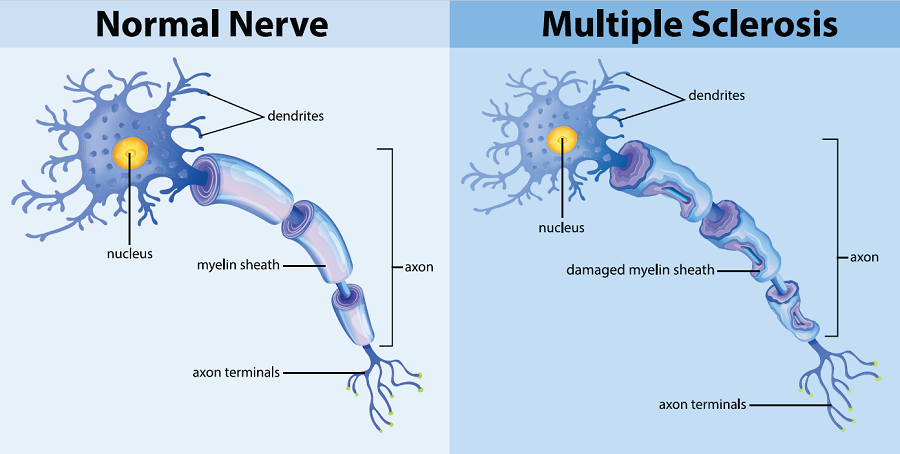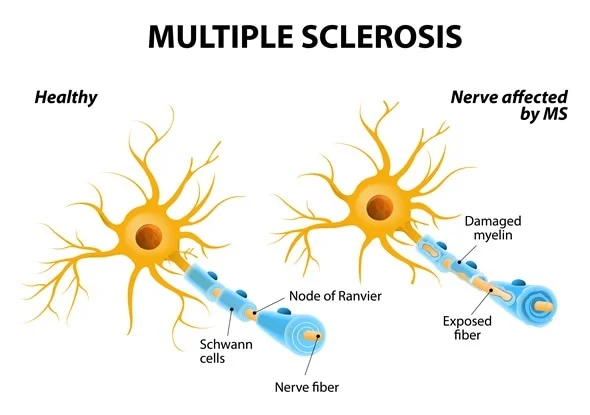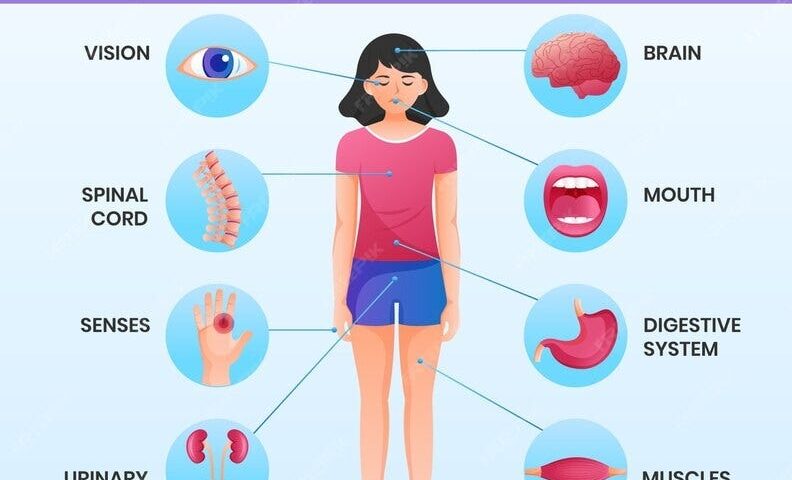
Comprehensive Treatment and Care: Weaving the Tapestry of Optimal Health
February 5, 2024
Living with Multiple Sclerosis: An Integrative Approach with Ayurveda and Modern Medicine
February 15, 2024Enhance the personal touch by replacing “Dr. Prasad” with your full name and qualifications. Additionally, consider mentioning your specific research focus or expertise in MS within Shreevidya Herbal Research Center.
Understanding Multiple Sclerosis: Briefly mention the different types of MS (e.g., relapsing-remitting, primary-progressive) to broaden the scope. Highlighting common comorbidities like depression and anxiety could also be beneficial.

The Importance of Diet in Multiple Sclerosis: Add a brief explanation of the science behind anti-inflammatory foods and their significance in MS management.
Foods to Avoid in Multiple Sclerosis: Explain the potential impact of each category of foods on MS symptoms. For example, mention how processed foods might contribute to inflammation through gut dysbiosis.
Ayurvedic Treatment for Multiple Sclerosis:
Panchakarma: Briefly explain the different types of Panchakarma procedures and their relevance to MS.
Herbal Remedies: Provide specific examples of herbal remedies for different MS symptoms (e.g., Ashwagandha for fatigue, Guggulu for joint pain).
Yoga and Meditation: Mention specific yoga poses and meditation techniques recommended for MS patients.
Dietary Guidelines: Briefly explain the concept of doshas and how an Ayurvedic practitioner can personalize your diet based on your dosha type.
A Holistic Journey: Your Guide to Diet and Ayurveda for Managing Multiple Sclerosis
Greetings, fellow travelers on the path to navigating Multiple Sclerosis! I’m Dr. Prasad, a researcher at Shreevidya Herbal Research Center, and I’m here to share a comprehensive guide on harnessing the power of diet and Ayurveda in managing this multifaceted condition.

Understanding MS: Navigating the Terrain
Multiple Sclerosis (MS) is a chronic dance where the immune system misinterprets the central nervous system, leading to fatigue, mobility challenges, and various sensory disturbances. While a cure remains elusive, a holistic approach encompassing a targeted diet and Ayurvedic wisdom can significantly improve the quality of life for those living with MS.
Fueling Well-being: The Dietary Compass
A key element of this holistic approach is a well-balanced and nutritious diet. Think of it as your map towards optimal health:
Anti-inflammatory All-Stars: Embrace omega-3-rich fatty fish like salmon and mackerel, flaxseeds, and walnuts. Let colorful fruits and vegetables, brimming with antioxidants, fight inflammation.
Vitamin D Defenders: Fortify your arsenal with vitamin D-rich foods like dairy products and fish, and bask in the golden glow of moderate sunlight (always with caution!).
Protein Powerhouses: Lean protein sources like poultry, fish, legumes, and tofu provide strength and support.
Whole Grains & Gut Harmony: Choose whole grains like brown rice, quinoa, and oats for essential nutrients and gut-friendly fiber.
Hydration Heroes: Keep the well of your body brimming with pure water throughout the day.
Steering Clear of Roadblocks: Dietary Considerations
Conclusion: Emphasize the importance of finding a qualified Ayurvedic practitioner with experience in MS treatment. Additionally, encourage readers to work closely with their conventional healthcare team for an integrated approach.
Overall, this is a well-written and informative guide. By implementing these suggestions and adding your personal touch, you can create an even more comprehensive and valuable resource for individuals living with Multiple Sclerosis.



